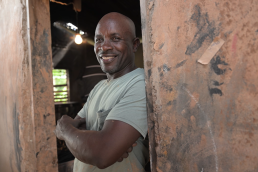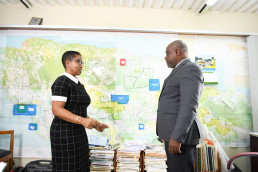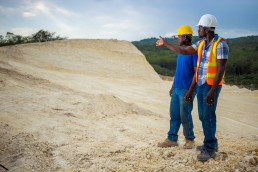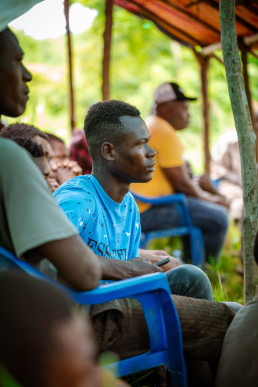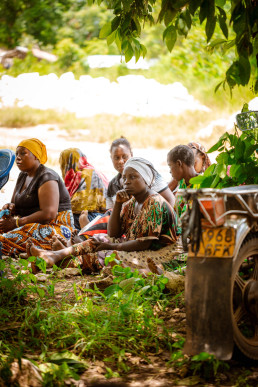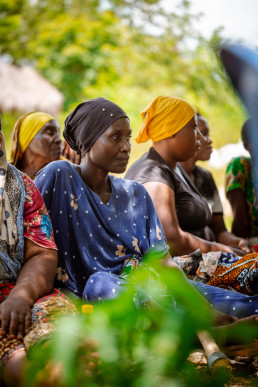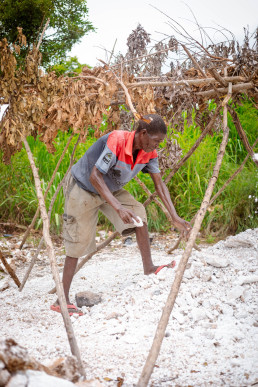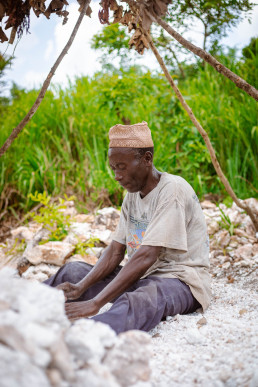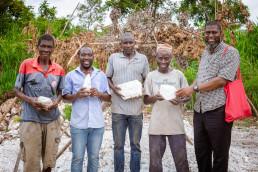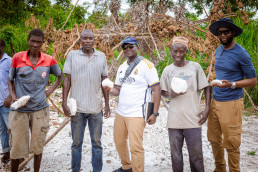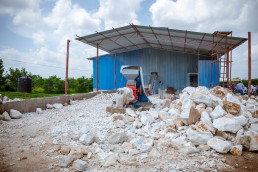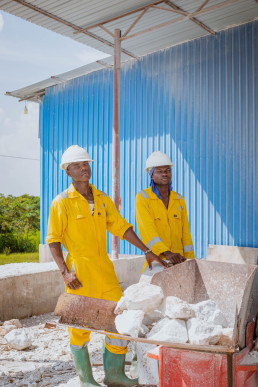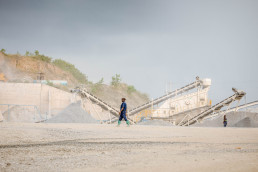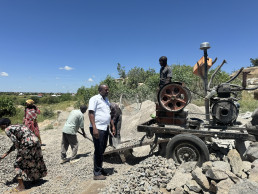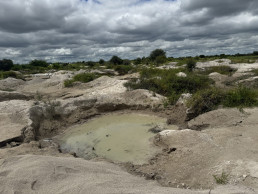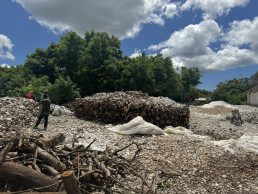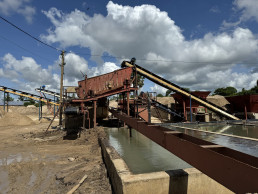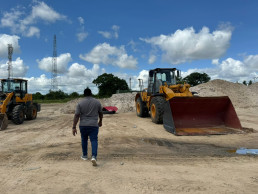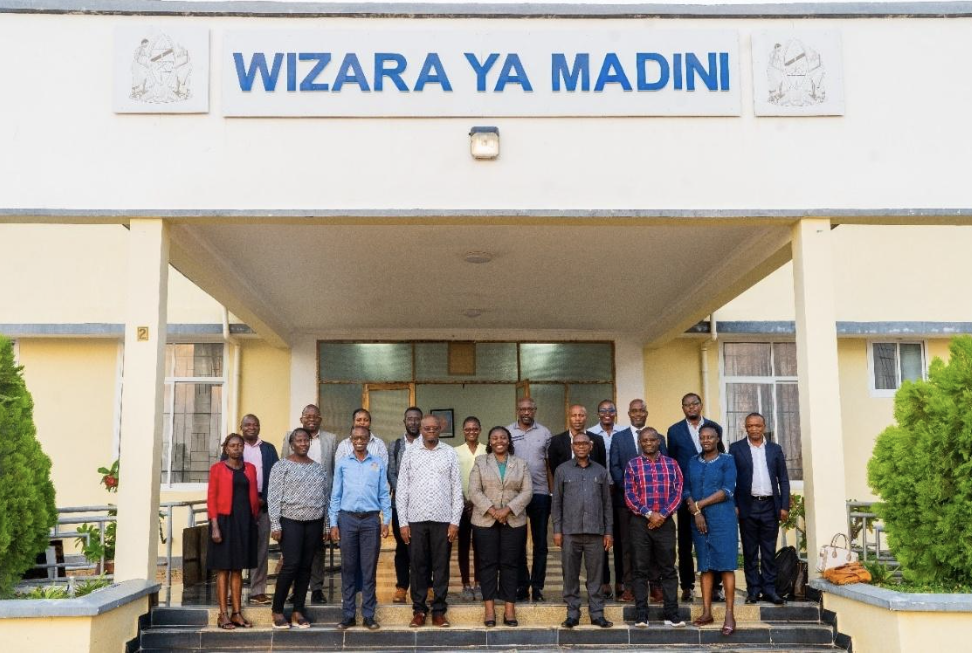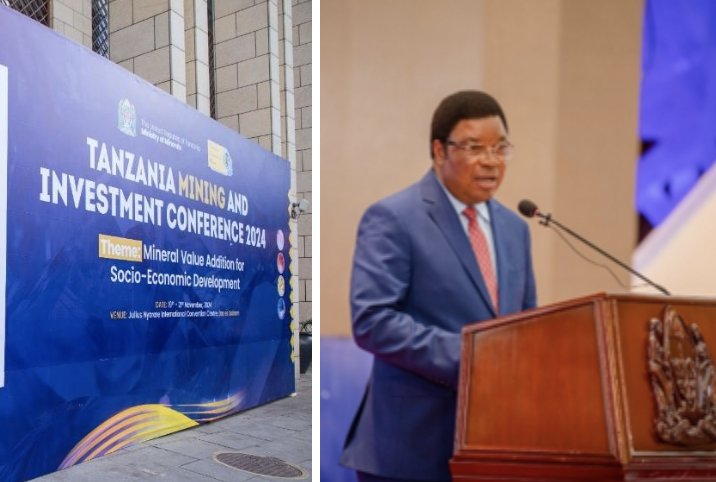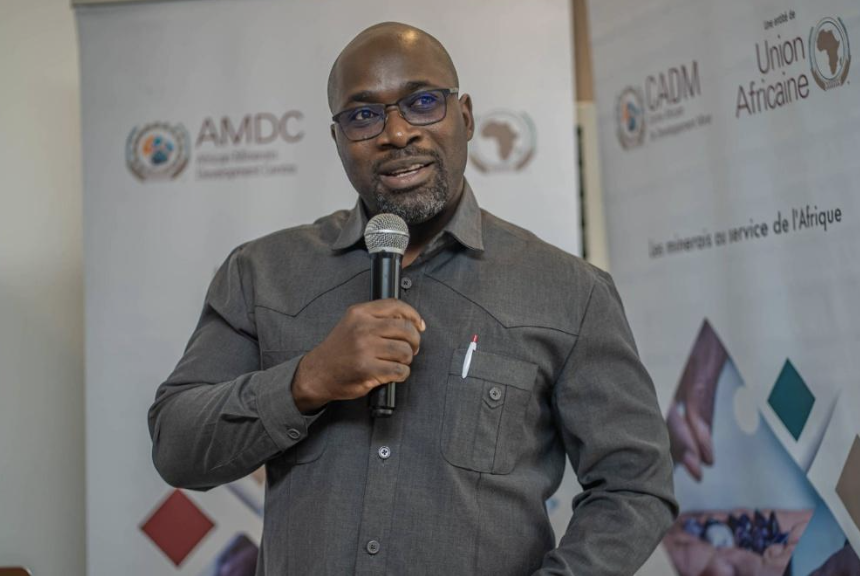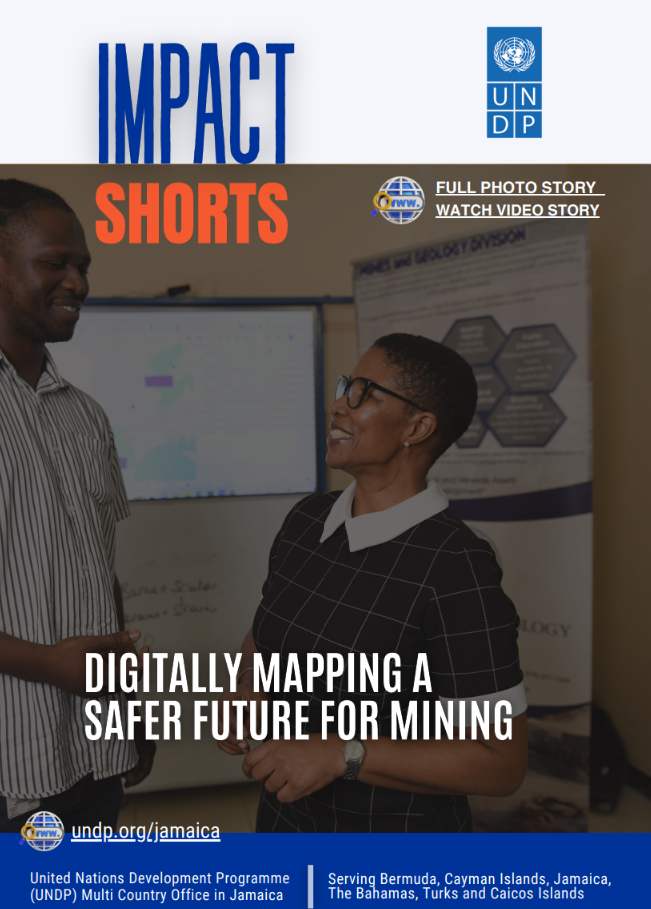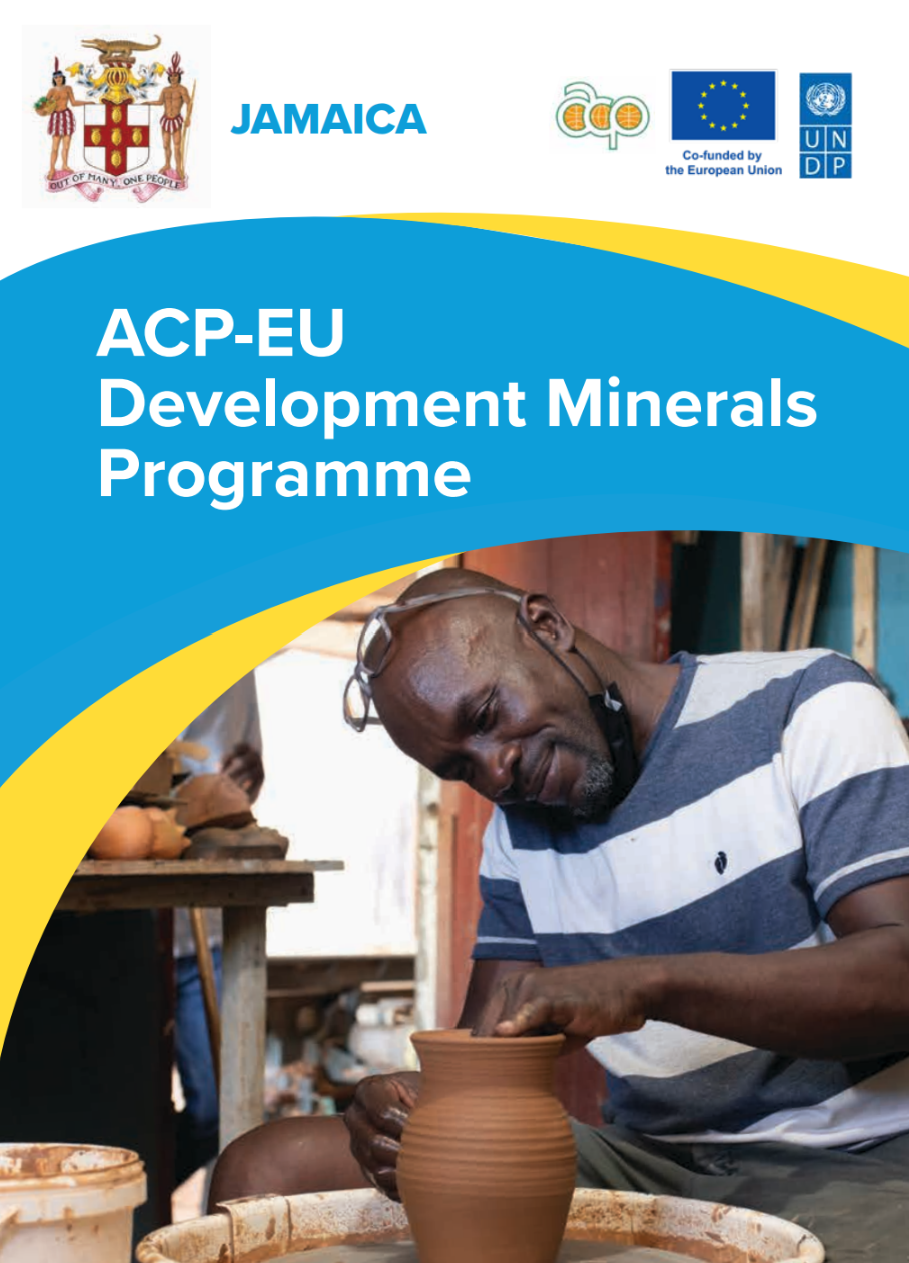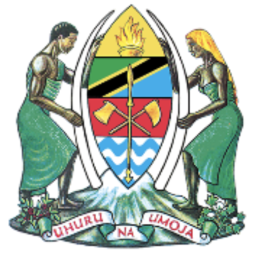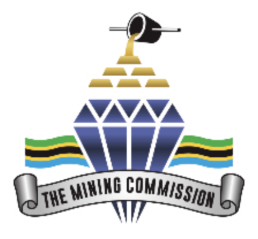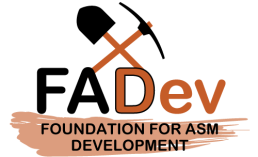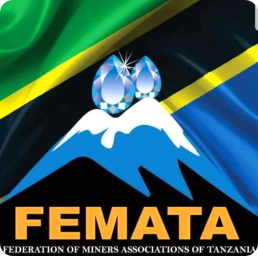TANZANIA
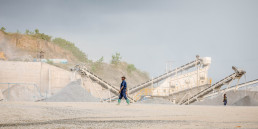
Located on the eastern coast of Africa, Tanzania has a diverse geography and stunning landscapes, from the snow-capped peaks of Mount Kilimanjaro to the vast plains of the Serengeti. Tanzania is endowed with abundant mineral resources and the contribution of the mining sector to its economy has been progressively increasing, reaching 9% of GDP by 2022. The major minerals produced are gold, coal, gypsum, salt, lime, diamonds and copper.
Tanzania is experiencing a boom in its mining industry. It is Africa’s fourth largest producer of gold after South Africa, Ghana, and Mali. It has a variety of gemstones, including Tanzanite – named that way because the gemstone is unique to Tanzania. It has large resources of varied minerals, including critical minerals and development minerals, The Ministry of Minerals is responsible for formulating and overseeing mining policies in Tanzania. The Mining Commission, established in 2017 issues and enforces mining licenses, regulates mining, and monitors compliance of mining operations throughout the country through its 29 Regional Resident Mines Office (RMOs), as well as Mines Resident Officers (MROs).
The Mining Act of 2010, including its major amendments of 2017, covers small-scale mining under the “Primary Mining License” (PML) category. The PML is “a license for small-scale mining characterized by minimal machinery or technology of an initial capital for investment which does not exceed US dollars 5 million or its equivalent in Tanzania Shilling.” Primary Mining Licenses are issued to small-scale mining operations that use simple tools and rely mostly on manual labour.
Development Minerals in Tanzania
Tanzania possesses a range of Development Minerals crucial to its infrastructure and industrial growth, including essential building materials like sand, aggregates, and clay. It the country also has deposits of dimension stones such as marble, granite, and slate, alongside a variety of industrial minerals like limestone, gypsum, salt, dolomite, pozzolana, kaolin, black clay, and limestone rubble. Tanzania is also renowned for its significant gemstone resources, boasting rich deposits and active mines of high-value stones such as diamonds, tanzanite, emeralds, rubies, garnets, tourmaline, and aquamarine.
Development Minerals in Tanzania are produced mostly by artisanal and small-scale mining operations. Development Minerals in Tanzania play a key role in the economic development of the country, in particular value-addition, industrialization, infrastructure and job creation. Despite the abundance of minerals, Tanzania does not meet its domestic demand and relies heavily on imported industrial minerals and their finished products.
Artisanal and small-scale mining
Artisanal and small-scale mining activities provide direct employment to many communities across the country and contribute to the broader rural economy by creating additional jobs and revenue.
~6 million
people earn their livelihoods from artisanal and small-scale mining in Tanzania
30%
of all minerals produced by artisanal and small-scale miners are Development Minerals
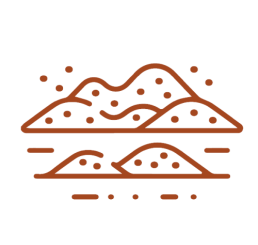
26%
of artisanal and small-scale miners mine building materials mining and salt mining
US$10 million
in fiscal revenues are collected from Development Minerals and ASM annually
~ 20–30%
of people working in artisanal and small-scale mining are women
Women account for
37% of aggregates miners
35% of sand miners
66%
of artisanal miners are young people aged between 18 and 35
The artisanal and small-scale mining sector plays a vital role in providing livelihoods for over 6 million Tanzanians, especially in rural areas. The regulatory framework categorizes miners into three groups, namely, large-scale, medium-scale, and small-scale miners. Unlike other countries, where the legal system distinguishes between artisanal miners and small-scale miners, Tanzania’s regulations group these two categories together.
The small-scale mining sector faces challenges such as poor working conditions, environmental degradation, and limited access to technology and markets. Despite these challenges, the sector holds significant potential for growth and development. By promoting sustainable mining practices, providing training and support, and integrating the sector into the formal economy, Tanzania can unlock the full potential of the artisanal and small-scale mining sector and contribute to the country’s economic growth and social development, and improve the lives of its people.
OUR WORK IN TANZANIA
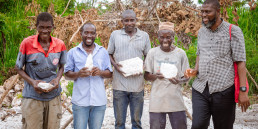
By empowering artisanal miners and promoting sustainable mining practices, the Programme plays a vital role in improving the livelihoods of mining communities and contributing to Tanzania’s economic growth.
The Programme has focused on addressing the challenges faced by the artisanal and small-scale mining sectors, including poor working conditions, environmental degradation, and limited access to technology and markets.
It supports Tanzania’s artisanal and small-scale mining sector by providing technical assistance, capacity building, and promoting sustainable mining practices. It aims to enhance the livelihoods of artisanal miners, reduce environmental impact, and contribute to the country’s economic growth. By empowering artisanal miners and promoting sustainable mining practices, the Programme plays a vital role in improving the livelihoods of mining communities and contributing to Tanzania’s economic growth.
In Tanzania, the Programme is:
Conducting research and analysis, shining a spotlight on the Development Minerals to identify policies and actions needed to improve conditions of artisanal and small-scale miners in Development Minerals and identify value chains for priority support
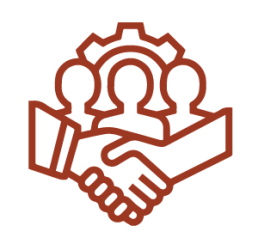
Working closely with the Ministry of Minerals and its agencies to address gaps in policies and to build the capacity of artisanal and small-scale miners and other key stakeholders in the Development Minerals sector
Collaborating with the government to build the capacity of artisanal and small-scale miners to enhance value addition, promote sustainable mining practices and address issues of human rights, gender, child labour, the environment and health and safety
FOCUS AREAS
Enabling Environment
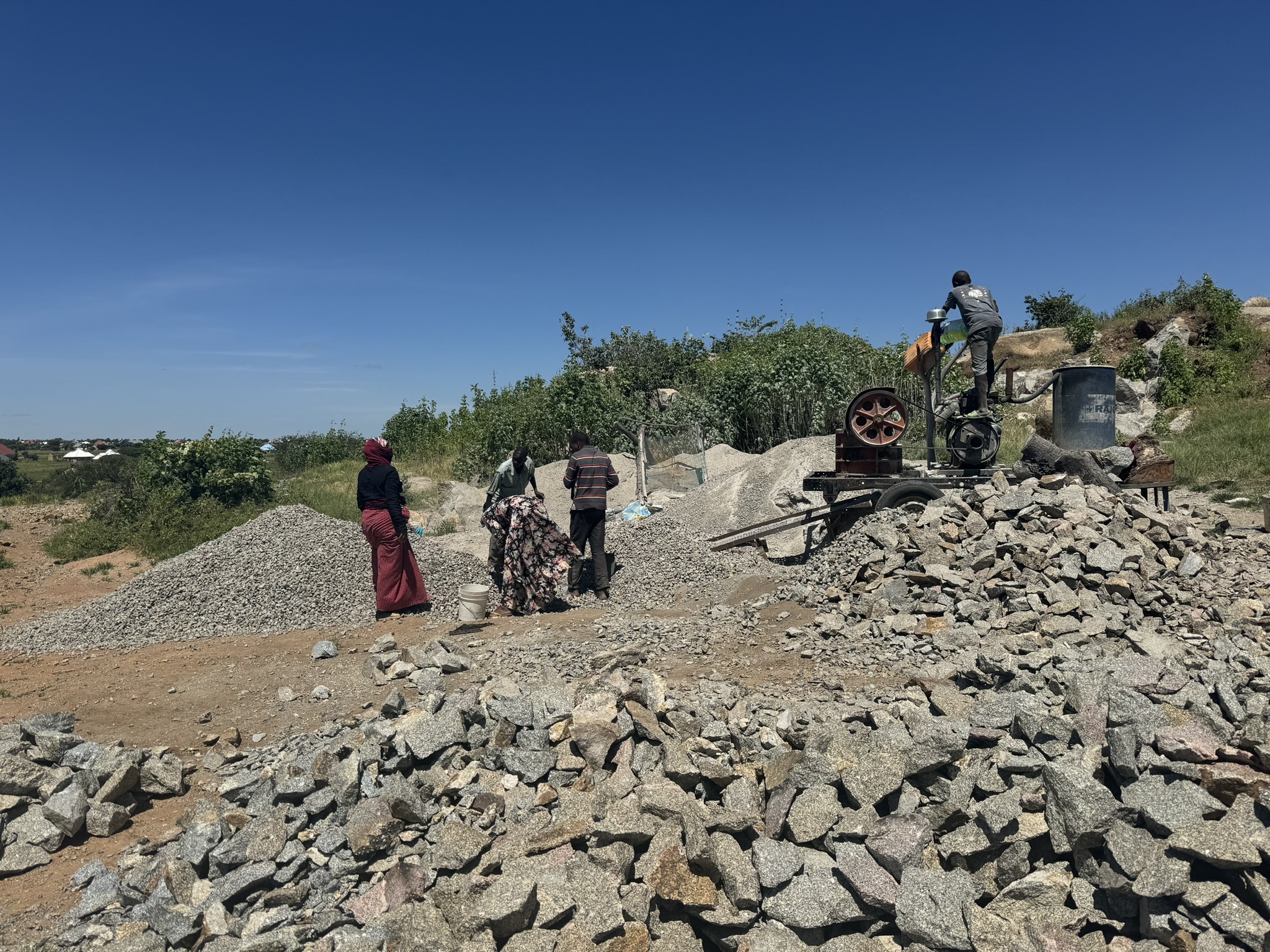
POLICIES AND INSTITUTIONS
The Programme assisted the Ministry of Minerals in Tanzania by analyzing national census data on Artisanal and Small-scale Miners (ASMs). This analysis utilized detailed information gathered during the 2022 National Population and Housing Census, which included specific chapters and questionnaires designed to capture data about ASMs in the country. As a result of this support, the Ministry now has a clearer and comprehensive knowledge and understanding of the demographics and characteristics of ASMs. This improved knowledge will enable the government to implement targeted interventions for the ASM sector. Such a systematic study and analysis of ASM represents a best practice approach that can be useful across many other countries with extensive presence of artisanal mining.
A baseline study on Development Minerals in Tanzania study, commissioned by the Programme, provided extensive information, data and insights into this previously overlooked sector. It provided valuable recommendations to inform policies in the sector, such as considering a more granular categorization of small-scale mining, harmonization of taxes and fees imposed on small-scale mining, considering earmarking the use of tax revenues from small-scale mining for improving administration of ASM, and developing of a simplified environmental management tool for small-scale mining.
The baseline study provides a comprehensive overview of the Development Minerals sector and analyses the value chain of these minerals in Tanzania. By examining 11 regions and 100 villages, the study provides profiles of miners of construction materials such as aggregates, sand and clay; dimension stones; and industrial minerals such as salt, gypsum and lime. It also provides maps and locations of many Development Minerals small-scale mines visited.
ARTISANAL AND SMALL-SCALE MINING
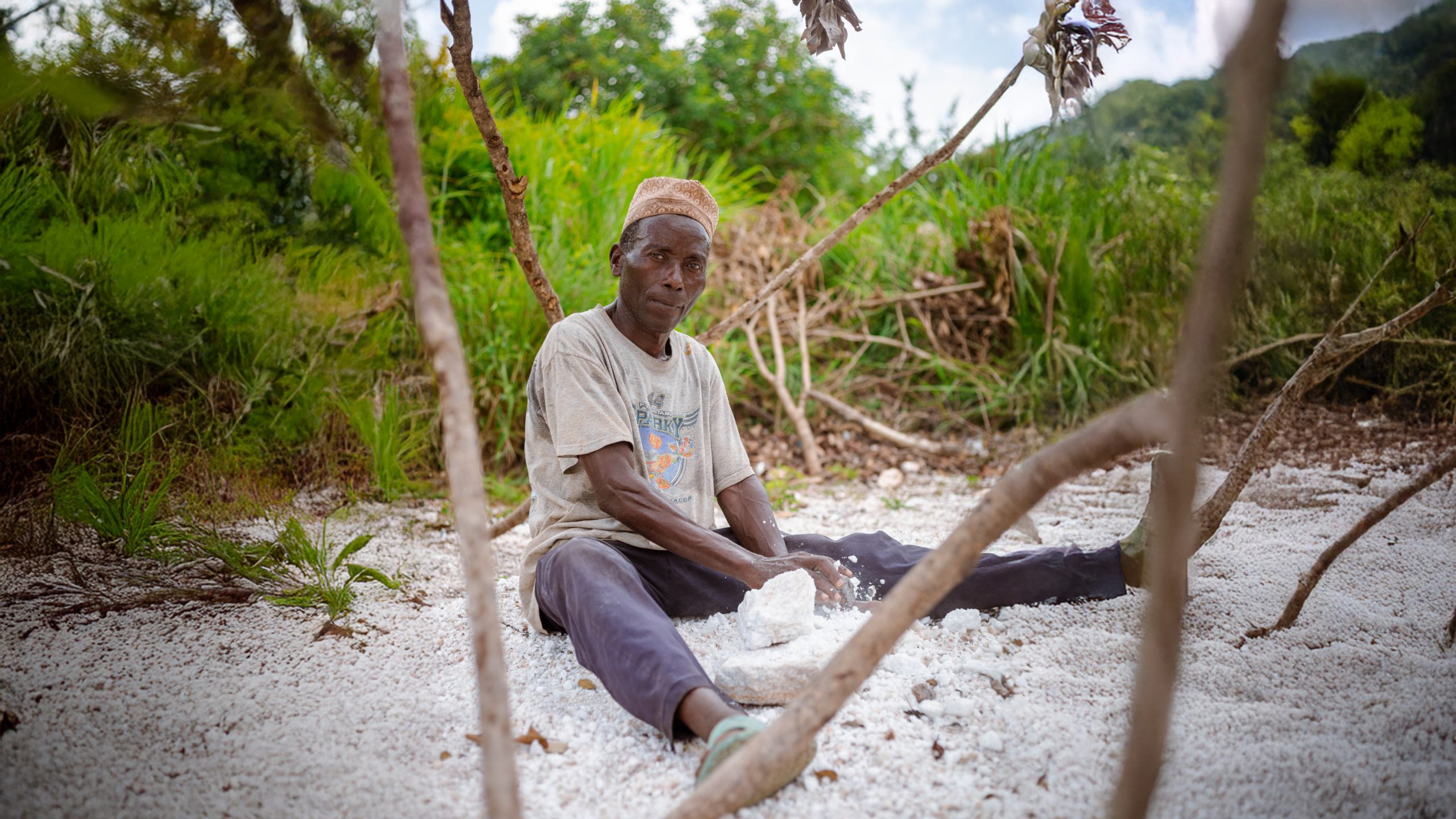
ORGANIZATION AND FORMALIZATION OFARTISANAL AND SMALL-SCALE MINERS
Tanzania has advanced in organization and formalization of its artisanal and small-scale mining sector. The Programme has facilitated sharing of Tanzania’s experiences in managing artisanal and small-scale mining (ASM) at various international fora, including the ASM forum in Zambia. Through this support, Tanzania was able to showcase its best practices, and the lessons learned from its reform journey. This collaboration has led to ongoing exchanges of knowledge between countries, promoting innovative approaches to tackle ASM challenges and promoting responsible mining practices that can benefit local communities and economies across ACP countries.
ENVIRONMENTAL, SOCIAL, GOVERNANCE AND SAFETY PRACTICES
The Programme collaborated with the Ministry of Minerals and the Mining Commission to train artisanal and small-scale miners, including women. The goal was to empower miners to contribute to the sector’s growth while adhering to international standards. The training sessions were conducted in Singida and Morogoro regions in Tanzania. Singida, located in central Tanzania, is known for mining sand, aggregates, and other construction materials, while Morogoro region’s proximity to Dar es Salaam and Dodoma – the nation’s capital – results in significant demand for industrial and construction materials for housing and infrastructure.
Key training topics:
- Regulatory compliance, legal framework: Compliance with mining regulations and awareness of licensing requirements; knowledge of the legal framework for accessing local and international markets
- Occupational Health: The importance of regular health check-ups to identify and address occupational health issues, such as respiratory diseases
- Occupational Safety: Best practices for safe mining operations, including the proper use of safety equipment and emergency procedure
- Environmental Protection: Techniques for minimizing environmental impact, such as land rehabilitation, erosion control, and water management
- Human Rights and Child Labour awareness.
By equipping miners with these essential skills, the Programme aims to improve working conditions, reduce accidents, and protect the environment.
Business and value chain development
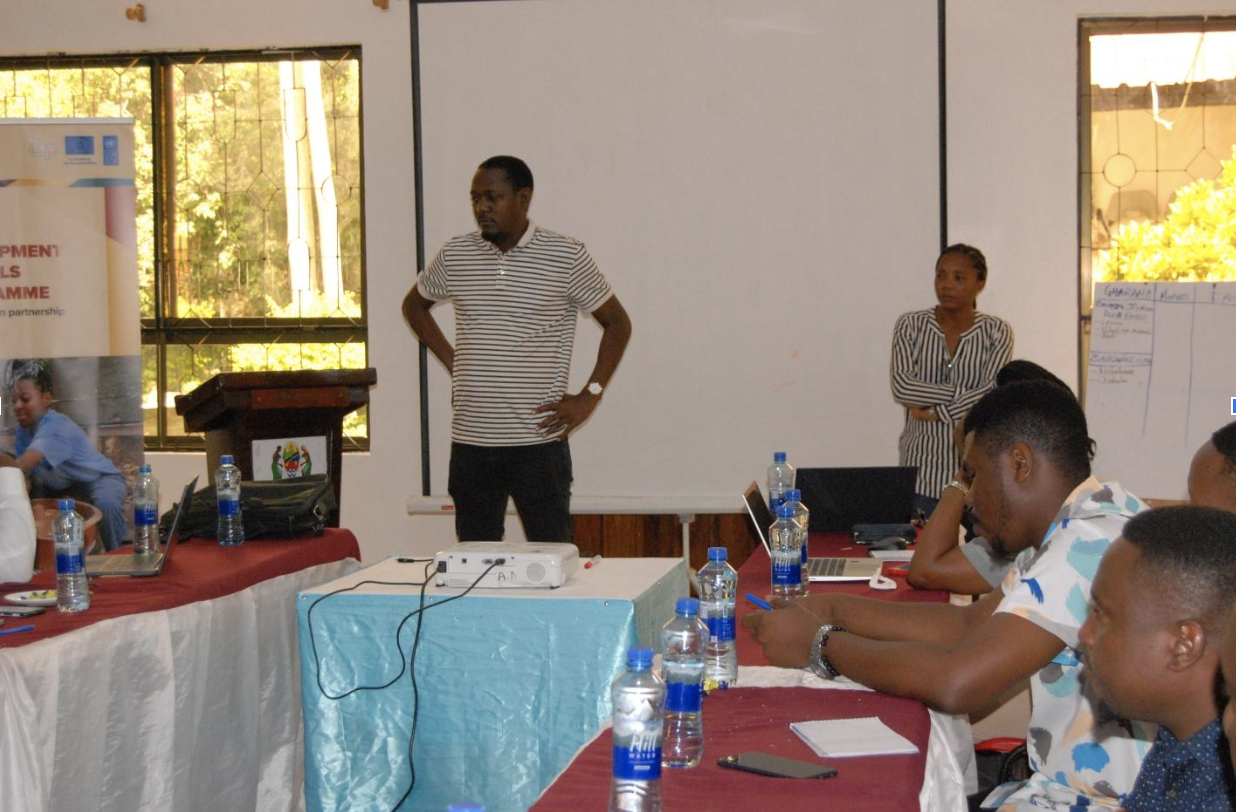
ENVIRONMENTAL, SOCIAL, GOVERNANCE AND SAFETY PRACTICES
The Programme collaborated with local financial institutions like Savings and Credit Cooperatives (SACCOs), Community Savings Groups and Village Community Banks (VICOBA) to make financial services more accessible to artisanal and small-scale miners. Artisanal miners were trained in business development, specifically in creating simple business plans to obtain loans from banks and other financial institutions.
Value Addition and Low-Carbon Materials
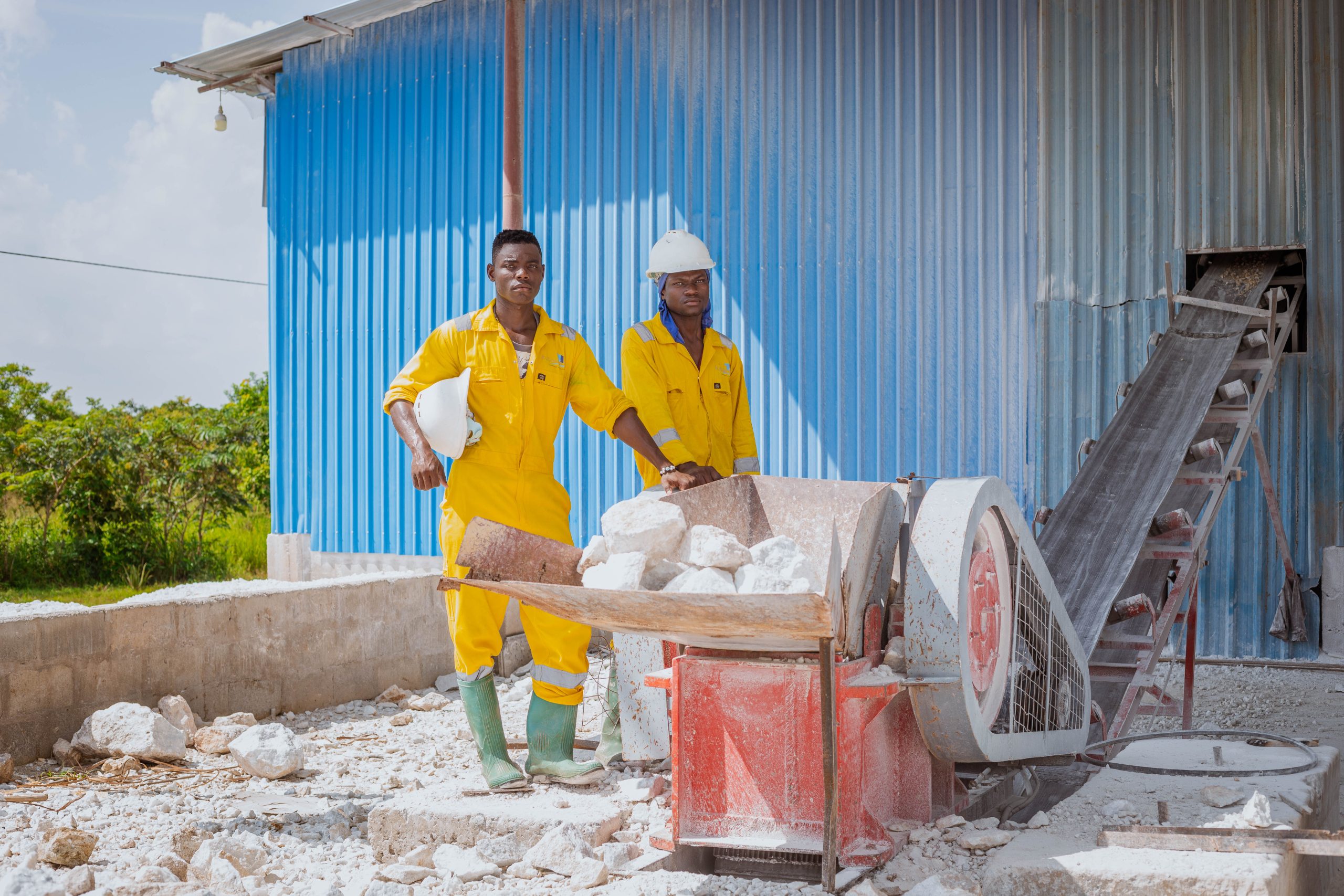
Skills and Value-addition to Development Minerals
The Programme uses a Training of Trainers (TOT) approach to create a pool of trainers who specialize in value addition of Development Minerals, for training of artisanal and small-scale miners in value addition. These trained individuals are deployed in different regions to share their knowledge on value addition. This approach creates a multiplier effect, where a small number of highly trained individuals can train a larger number of miners. It helps to ensure that the knowledge and skills needed to add value to minerals are disseminated widely and efficiently.
MEDIA
Voices from the field
“We are involved in the ACP–EU Development Minerals Programme, which focuses on enhancing small-scale miners and supporting small-scale mining activities for industrial minerals and building materials. Through this programme, training was provided to small-scale miners to identify key areas of focus that can improve their operations. The aim is to support miners operating at a lower level and help them build the capacity needed to grow their projects and operate at a more sustainable and productive level.
”
We are involved in the ACP–EU Development Minerals Programme, which focuses on enhancing small-scale miners and supporting small-scale mining activities for industrial minerals and building materials. Through this programme, training was provided to small-scale miners to identify key areas of focus that can improve their operations. The aim is to support miners operating at a lower level and help them build the capacity needed to grow their projects and operate at a more sustainable and productive level.”
Eng. Fadhili Halifa Kitivai
Senior Mining Engineer at the Mining Commission under the Ministry of Minerals
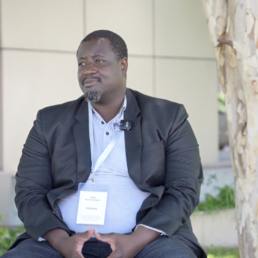
“The training conducted by the ACP-EU Development Minerals Programme has been very successful, dating back to the 2018 Mosi-oa-Tunya Declaration. Both the training and the declaration set the roadmap for the success of our federation, as some of us were directly involved. After completing the training, we presented the declaration to the government that was in power at the time and explained what needed to be done based on the issues we had discussed. The government accepted our proposals, and within the same year, in December, we were invited to be part of a team tasked with providing recommendations on how to improve implementation in line with the declaration.
”
The training conducted by the ACP-EU Development Minerals Programme has been very successful, dating back to the 2018 Mosi-oa-Tunya Declaration. Both the training and the declaration set the roadmap for the success of our federation, as some of us were directly involved. After completing the training, we presented the declaration to the government that was in power at the time and explained what needed to be done based on the issues we had discussed. The government accepted our proposals, and within the same year, in December, we were invited to be part of a team tasked with providing recommendations on how to improve implementation in line with the declaration.”
Mr. Lister Balegele
Small-scale miner from Kigoma (Tanzania) and former Secretary General of the Federation of Miners’ Associations of Tanzania (FEMATA)
Videos
Demand for Development Minerals in Tanzania
Photos
IN THE NEWS
- UNDP brings together Tanzania and Uganda to fortify mining regulatory frameworksTanzania
6 December 2024
IPP Media (The Guardian)
EVENTS
- There are no upcoming events.
- There are no upcoming events.
Latest Past Events
Uganda – Tanzania Knowledge Sharing Mission
Dar es Salaam and Dodoma, TanzaniaA high-level delegation from Uganda explored best practices from Tanzania’s success in mining sector management. By learning from Tanzania's experiences, […]
Fifth Tanzania Mining Investment Conference
Dar es Salaam, TanzaniaThe Programme contributed to and participated in the 5th Tanzania Mining Investment Conference held in November 2024, organized by the […]
East and Southern Africa Regional Consultative Workshop: Towards an Artisanal and Small-scale Mining Continental Strategy
Dar es Salam, TanzaniaThe Programme supported the African Minerals Development Centre (AMDC) in organizing a regional workshop to discuss the artisanal and small-scale […]

